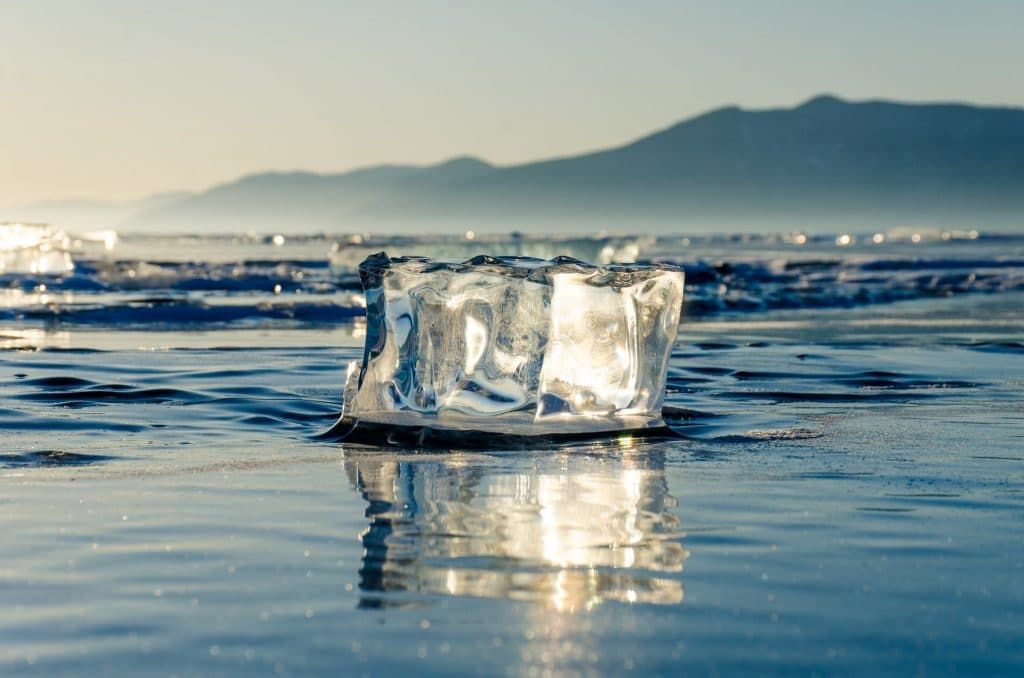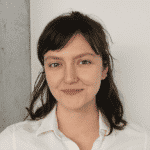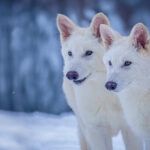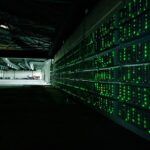Russia’s war has chilling effect on climate science as Arctic temperatures soar
By Jessica McKenzie | March 29, 2022
 Lake Baikal, Siberia, Russia (Photo by Daniel Born on Unsplash)
Lake Baikal, Siberia, Russia (Photo by Daniel Born on Unsplash)
Earlier in March, temperatures around the North Pole approached the melting point, right around the time of year that Arctic sea ice is usually most extensive. In some places, the Arctic was more than 50 degrees Fahrenheit warmer than average. It’s part of an alarming trend; over the past 30 years the region has warmed four times faster than the rest of the globe. The shift is transforming the Arctic land- and seascape, causing sea ice to melt, glaciers and ice sheets to retreat, and permafrost to thaw. And while the Arctic is particularly vulnerable to climate change, it also has an outsized potential to contribute to global warming, as melting permafrost releases carbon dioxide and methane into the atmosphere.
And yet, just when the climate scientists and governments across the eight Arctic states should be working together to understand and address the climate crisis, Russia’s war on Ukraine has forced the Arctic Council, an intergovernmental group of Arctic states and Arctic Indigenous Peoples, to suspend their joint activities in protest of Russia’s unprovoked aggression.
“It’s so crucial for us to not lose sight of accelerating climate change, and to be making as much progress as possible,” Marisol Maddox, a senior arctic analyst at the Polar Institute of the Woodrow Wilson International Center for Scholars in Washington, DC, said. “And Russia’s invasion of Ukraine is creating serious challenges to that within the Arctic context, because of the way that that’s manifested with the pause of the Arctic Council, and all of its subsidiary bodies.”
As the scientists and experts interviewed for this article all reiterated, the horrific humanitarian crisis on the ground in Ukraine is their foremost concern. But the war is also having all kinds of knock-on effects, from preventing scientists from conducting fieldwork to interrupting longstanding diplomatic relations and research partnerships. This is detrimental to climate science, but not only to climate science.
Jessica McCarty, a professor of geography at Miami University in Ohio and part of the Arctic Council’s Arctic Monitoring and Assessment Programme, said scientific and technical exchanges during and after the Cold War helped lay the groundwork for peace by normalizing relationships between countries. “International scientific exchanges are really important for understanding climate change in places like the Arctic, but they’re also really important for maintaining things like global peace,” she said.
McCarty is currently on sabbatical in Helsinki, Finland, studying how wildfires are impacting the Arctic as part of an EU-funded project on black carbon and climate change. But her work on short-lived climate forcers for the Arctic Council is indefinitely on hold, with meetings that had been scheduled in late spring and summer canceled or postponed. She is also barred from doing any work, whether through the Arctic Council or not, with any Russian or Russia-affiliated scientists.
“It sucks,” McCarty said about being unable to continue her work for the Arctic Council. “I don’t have a good PhD-level word … except that it sucks.”
To the extent that McCarty’s work can continue outside the Arctic Council and without the participation of Russian scientists, it will. But the war has been even more disruptive for scientists planning fieldwork within Russia’s borders.
Sander Veraverbeke, a professor at Vrije Universiteit Amsterdam, studies climate change and fires in the boreal forest and the Arctic tundra. He is three and a half years into a five-year project studying wildfires in Eastern Siberia, but because of the COVID-19 pandemic and now the war, hasn’t been able to conduct fieldwork since 2019.
Siberia is already one of the least-studied parts of the Arctic. “If you look at the amount of data that’s available from Siberia, almost for every single variable or field measurement, it’s an order of magnitude less, there’s much less data,” Veraverbeke said. “And the Eurasian Arctic boreal region is about double the size of the North American boreal region. So that already kind of shows that it’s really important. Although some of the processes may be comparable across continents, some other processes are not comparable. You cannot just say, ‘Oh, we made some measurements in Canada, so in Siberia, it’s going to be the same.’ For some aspects that may be true, but you can definitely not generalize that.”
For example, Veraverbeke said the boreal forests in Canada and Alaska are dominated by black spruce, which grow in clumps low to the ground, so fires in those regions burn very intensely. But the forests in Siberia are dominated by Pinus sylvestris, a taller pine, interspersed with other tall trees that grow in a more open forest structure, so wildfires will often consume ground fuels but leave the canopies untouched. Part of Veraverbeke’s research over the past few years has been quantifying the amount of carbon combusted in these fires, but 2019 was the only year his team was able to get out into the field.
More recently, Veraverbeke secured funding for another project studying how fire impacts permafrost. Does wildfire accelerate permafrost degradation, or can it recover from these events? And what are the long-term effects of fire on greenhouse gas emissions from permafrost? His research is all the more timely because 2019, 2020, and 2021 were all record years for wildfires in Eastern Siberia.
Veraverbeke has tried to make up for the lack of fieldwork by using more satellite data. “Because of that, we’ve still been able to do some nice science and to be somewhat productive, but it’s not the science that we had in mind,” he said.
Other researchers studying the geological record of permafrost in Siberia had to cut their fieldwork short after Putin invaded Ukraine and are unsure when they will be able to return. Biologists studying polar bears, salmon, and red knots, a shorebird, have also had to cancel or change their research plans.
The conflict also threatens to disrupt long-standing collaborations with Russian scientists. Veraverbeke’s department, for example, has a research collaboration with a branch of the Russian Academy of Science in Yakutsk, which has installed flux towers (a kind of monitoring station) in the forest and tundra to measure greenhouse gases like carbon dioxide and methane, information that is difficult if not impossible to get anywhere else. If war prevents information from being shared between countries for months or even years, it could create significant data gaps in what scientists would otherwise want to be a continuous time series. Of course, climate is not the only scientific field of study impacted.
“It seems like things are only potentially going to be getting worse in Ukraine,” Maddox said. “I think we’ll be dealing with data gaps from Russia for the foreseeable future.”
“It’s not just about the access to the research,” Maddox added. “Russia is really clamping down on their domestic population. And so there’s now heightened concern for Russian researchers, who could, if they’re communicating a lot with the West, could be accused of being a foreign agent, because Russia expanded their foreign agent laws recently to not just apply to organizations, but to individuals.”
McCarty is also worried about the scientists themselves, in both Russia and Ukraine. “I do have dear colleagues in Russia,” she said. “This is where I have to be careful with what I say because I don’t want to get them in trouble. I am concerned for them, they are brilliant, and right now that collaboration just cannot continue. Because the conflict and what’s happening in Ukraine is paramount, that suffering and that war is what our attention should be on. But there’s just a wealth of human capital that’s being wasted in Russia.”
Scientists in Ukraine are facing danger and uncertainty of a different magnitude. “I have colleagues in Ukraine,” McCarty said. “I’ve had colleagues who’ve left Ukraine. And, you know, my concern was with them and their families, initially; it’s with them and their futures still, because that is just so uncertain.”
Maddox said much of her work right now is focused on how to maintain cooperation between the seven other Arctic States. “There’s a lot of discussion about ways to keep this productive cooperation going, even if it doesn’t include Russia at this point,” she said. “Time is not on our side when it comes to a lot of these issues, and so how can we just keep advancing this and keep the research going and keep making progress on being able to respond if there’s some type of environmental disaster or search and rescue incident, for instance.”
Climate scientists are hopeful, if not necessarily optimistic, that the conflict will end soon, and they can get back into the field and begin rebuilding relationships with Russian colleagues. Until then, they will make do as best they can with satellite data and ground monitoring elsewhere in the region.
“I just feel sad for international Arctic science right now,” McCarty said.
Together, we make the world safer.
The Bulletin elevates expert voices above the noise. But as an independent nonprofit organization, our operations depend on the support of readers like you. Help us continue to deliver quality journalism that holds leaders accountable. Your support of our work at any level is important. In return, we promise our coverage will be understandable, influential, vigilant, solution-oriented, and fair-minded. Together we can make a difference.
Keywords: Arctic, Arctic Council, Russia-Ukraine, Siberia, Ukraine, climate crisis, climate science, climate science research, permafrost, wildfire
Topics: Climate Change















